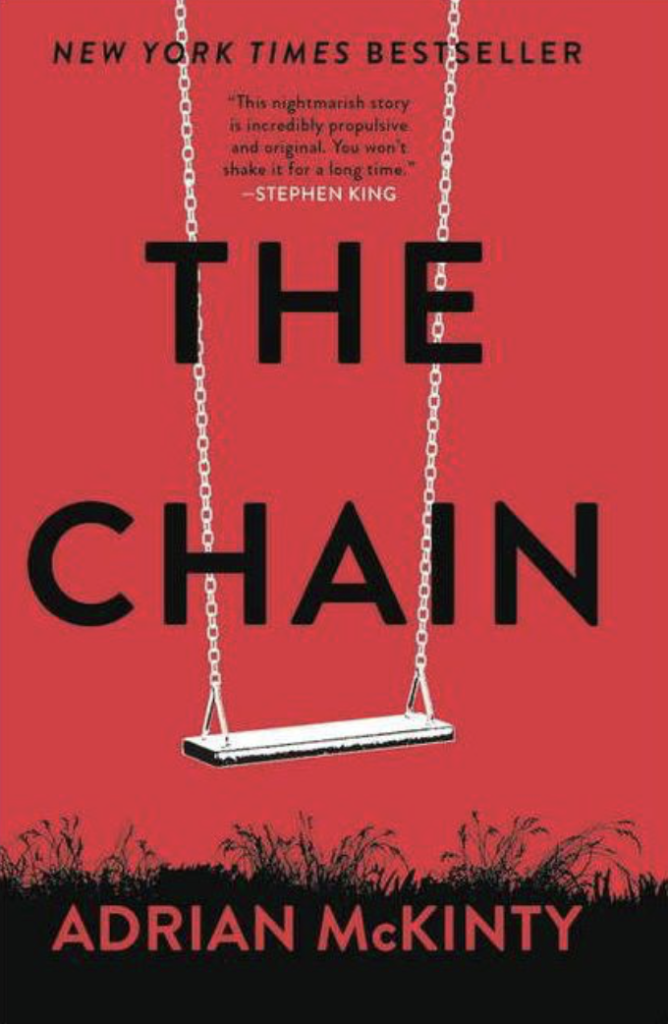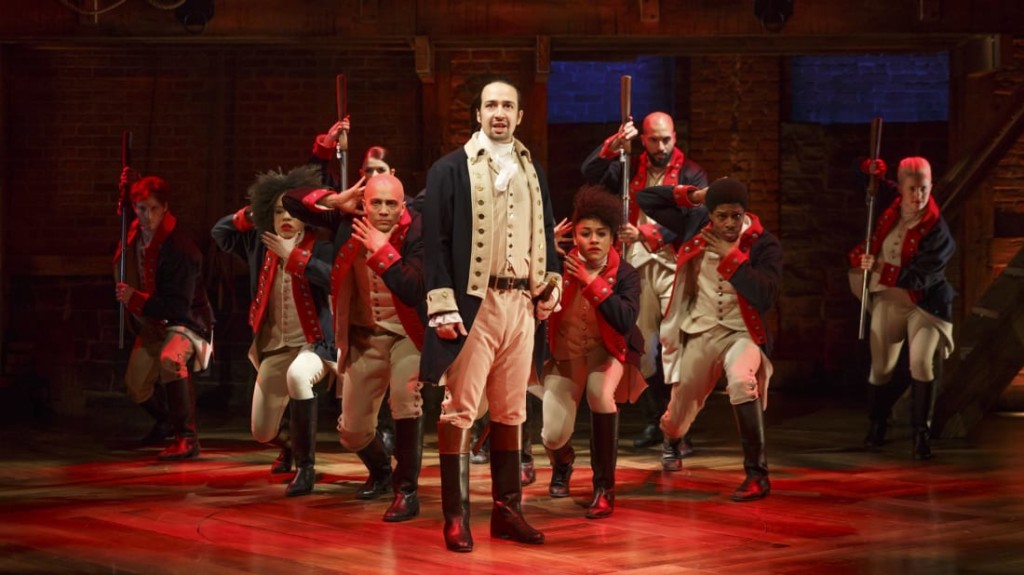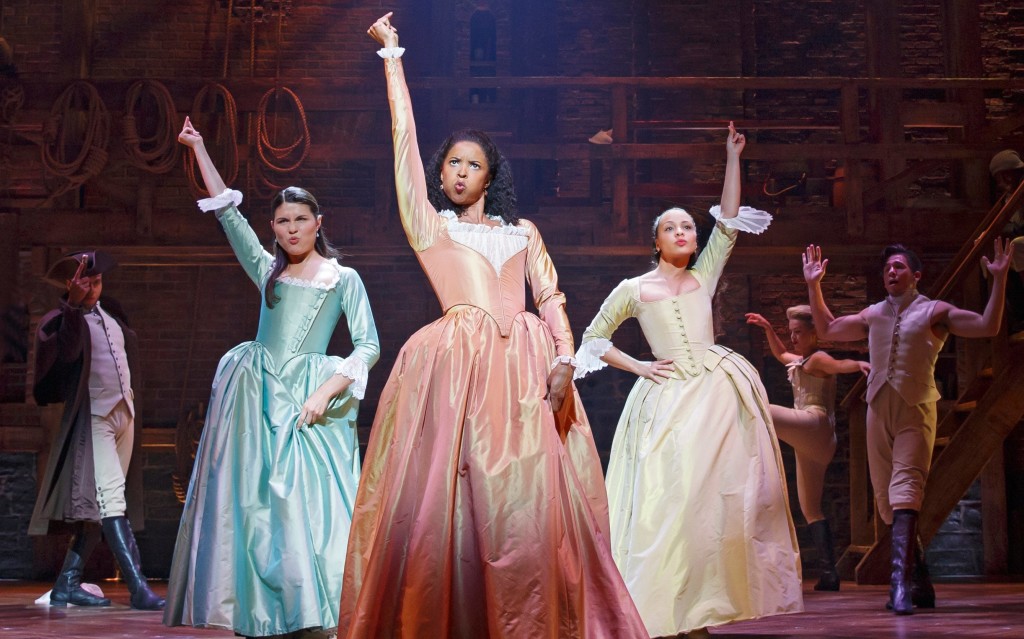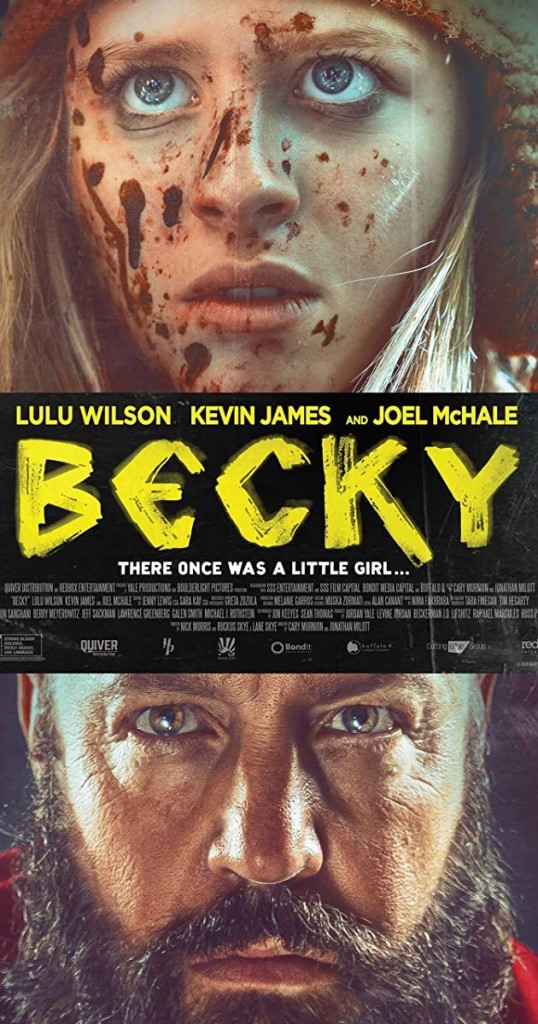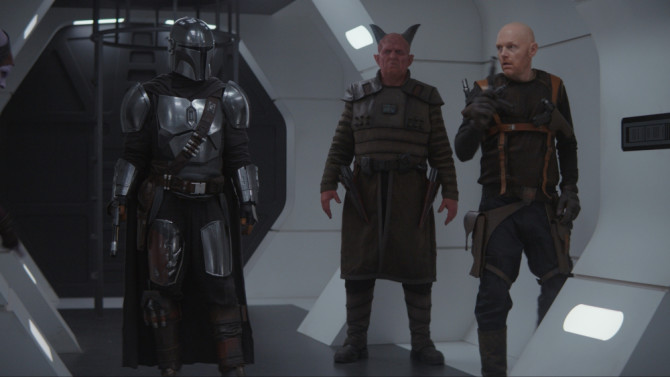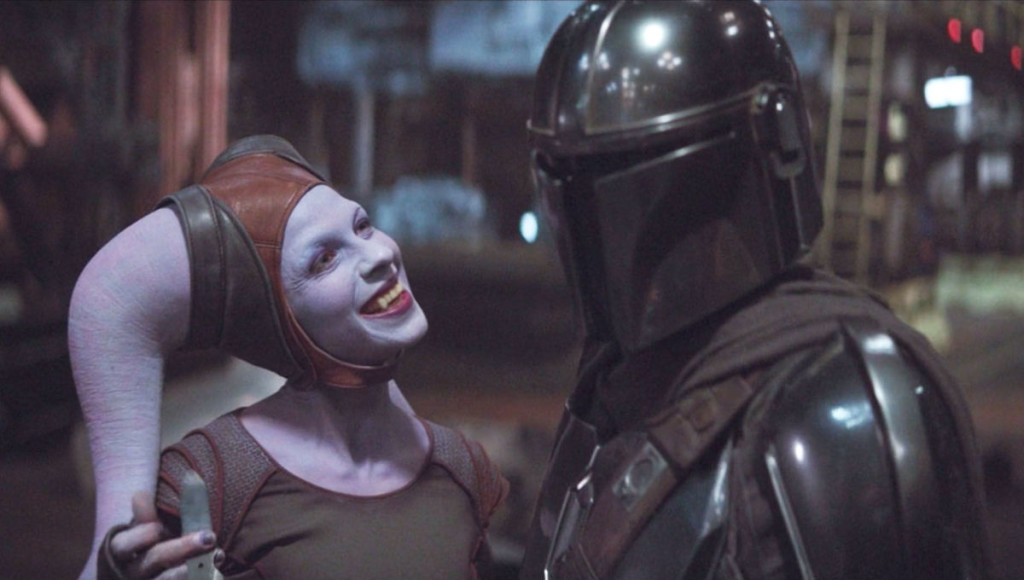Search Results for: mena
A seven figure movie deal with Edgar Wright directing!
Genre: Thriller
Premise: A suburban mother’s life is upended when her daughter is kidnapped. But it’s the demand of the kidnapper that’s the real head-scratcher — to get her daughter back she must kidnap someone else’s child.
About: Today we’ve got a review of a high-profile project. This recent best-seller went up for a bidding war that Paramount won, paying seven figures for the movie rights. But what’s more impressive is that they somehow got high-profile and artistically demanding director Edgar Wright to helm the movie. Oh, and here’s another fun tidbit. The writer, Adrian McKinty, was an Uber driver. So the next time you’re feeling hopeless working in that mindless low-paying job you detest, remember that success is always just around the corner as long as you’re willing to work for it. And by work for it, I mean, MAKE SURE YOU’RE WRITING EVERY DAY.
Writer: Adrian McKinty
Details: 370 pages
Make good people do bad things.
Or make bad people do good things.
The contrast of either of those setups is going to yield strong results.
The Chain takes that first premise and jabs 5000 ml of horse steroids into it. Our heroine, Rachel, is the goodest of the good. A single mother who loves her daughter more than anything. And, oh, she’s a cancer survivor! How pure and lovable can one person get?
But today’s story tests the limits of suspension of disbelief.
You guys remember what that is, right? Everybody goes into a book or a screenplay or a movie understanding that what they’re watching isn’t real. We know, for example, that when Spider-Man is swinging from building to building in downtown Manhattan, that isn’t really happening. And yet we’re engaged. Yet we care. Yet we’re invested in how he’s going to stop the Vulture. That’s suspension of disbelief. It’s creating a, sort of, magical cloud around your story that’s convincing enough that, even though you know you’re watching something made-up, you still believe it’s real.
The Chain tries, at every turn, to obliterate that cloud. The aforementioned Rachel is minding her own business in suburbia when, one day, a woman calls her and tells her that she’s kidnapped Rachel’s 13 year old daughter, Kylie. She gives Rachel instructions. Send 25k to this bank account AND THEN go kidnap another child, after which you will convince their family to do the same. Fail to abide by the rules and your kid will be killed. We know this because every family has the ultimate motivation. If they don’t do what they’re told, their own kidnapped child will be killed. If you try to call the police or anyone not approved, they will kill you.
Rachel has become a link in The Chain, a sophisticated operation whereby the regular people are forced to do the kidnapping so the bad guys don’t have to. All they do is collect the money. The chain is everywhere. Always watching. On your phone, on your computer. The people you walk past at the bank could be part of the chain. So you must do what the chain tells you to do.
Rachel doesn’t have to be told twice. After she pays the ransom, she recruits her ex-husband’s brother, who used to be in the military, and the two research five candidate kids to kidnap. Rachel, who lives in a beautiful seaside summer town, recruits one of the empty houses to stuff the kidnapped kid in and off they go. But the kidnapping goes wrong and they’re forced to kidnap a sister of the target, who just happens to be a walking allergy. Get anything funky near her and she goes into convulsions. This isn’t going to be easy.
But through hard work and perseverance, they follow the chain’s rules and actually get Kylie back! As a bonus, Rachel and her ex’s brother fall in love. It seems like the nightmare is over. But guess what, we’re only at the midpoint!
In the second half of the book, we meet the chain’s weirdo CEOs, a couple of kooky twins, boy and girl, who grew up in a commune. We see how their bizarre childhood led to their idea for the chain. Meanwhile, Rachel is having nightmares and Kylie is googling how to kill herself. Rachel realizes that the only way these things go away is if they take down the chain!
Through some reconnaissance, Rachel and Paul find an old victim of the chain, a mathematician, who’s just like Rachel. The nightmares won’t end until he gets justice. So the three of them design a program to find the chain. And after much research, they learn that the chainys are not far from here. Off they go to confront the bastards. But everything is thrown for a loop when they realize that they’ve got Kylie once again!
The Chain is kooky sillyville 9000 for the majority of its running time.
Like I said, it’s practically begging you to point out the holes.
The real problem is that The Chain’s rules are too complicated.
The more moving parts there are to your story rules, the more work you’re going to have to do plugging the plot holes up. Take Double Jeopardy, for example. It’s by no means a great movie. But the rules were insanely simple. You can’t be convicted of the same murder twice. Which means you’re allowed to kill the person a second time and get away with it.
The Chain is way way way way way more complicated. Your kid is kidnapped and to get them back, you need to kidnap someone else and pay a ransom. Then convince someone else to kidnap someone else and pay a ransom. Only then do you get your kid back. But then you still keep the kid you’ve kidnapped until the next family sets up the next family in the chain, I think. Even though you already have your kid back?
And, oh yeah, if someone screws up three links down the chain long after you’re finished, you’re brought back into the chain and must perform random jobs like convincing other people not to call the cops or else The Chain people will kill you and your family. The lesson here is to keep the rules of your concept simple. Otherwise you’re going to be spending endless nights trying to cobble together a cohesive storyline.
Where I do give credit to McKinty is that he doesn’t end the story where we think he will. I was genuinely surprised that they got the daughter back by the midpoint. It was then that I realized this wasn’t about this family’s ordeal. The concept was “the chain.” So McKinty wanted to explore the chain and how it originated and how it worked. And I admit I was into it enough that I wanted Rachel to take them down. They were such evil people that I had to see them get served a heaping of justice.
Unfortunately, the bad guys turned out to be weak sauce. It was basically two weirdo kids (or kids-turned-adults). They weren’t menacing at all. I don’t know if that was the point. They created a facade where they were this powerful organization when, in reality, they were just a couple of socially awkward 20-somethings. But that begged several other questions, such as how they had this endless network of people willing to do highly criminal things at the drop of a hat. Either you have to be a legit huge operation or you have to convince me how a couple of doofuses pulled this off.
I’m curious why Edgar Wright signed onto this. Here’s a guy who worked on Ant-Man for a decade but dramatically marched out due to “artistic integrity” yet he’s directing a movie about a nearly impossible to buy into kidnapping chain?
I’m having trouble wrapping my head around this project. Is it a throwback 1990s high-concept thriller? Is it trying to be the next Gone Girl?
It’s mildly entertaining but it’s so fluffy and filled with plot holes that it’s hard for me to imagine any sophisticated filmmaker wanting to do this. I’m seeing this more as a “debuts #5 on Netflix’s Top 10 List,” right behind “Drunk Parents.” I guess we’ll have to wait and see.
[ ] What the hell did I just read?
[x] wasn’t for me
[ ] worth the read
[ ] impressive
[ ] genius
What I learned: Padding your stats. In sports, there’s something known as padding your stats. It’s when you take extra shots or throw extra passes in the hopes of improving your yardage, assists, goals, points, despite the fact that the game has already been decided. On my football team, the Bears, our lousy QB, Mitch Trubisky routinely throws 50 yard passes at the end of already decided games in the hopes of padding up his stats and looking better than he actually is. I see writers doing this as well. They add things onto their characters because they think it’s going to make them look better or more complex or more interesting, despite the fact that it doesn’t affect the story at all. There’s this whole character backstory here where Rachel is a cancer survivor and she’s worried the cancer has come back that has ABSOLUTELY NOTHING to do with the story. The novel didn’t need it. But a writer was trying to pad their character, make them more “interesting” and “complex.” Avoid this if you can. The only time you should add anything significant to your character is if it’s going to be relevant to the story.
And now for something completely different…
Genre: Movie/Stage Musical
Premise: The story of Alexander Hamilton… rapped.
About: Hamilton was a Broadway sensation beyond anything this decade has seen. Unfortunately, the only way to see it was to a) pony up 2 grand for a seat and b) locate a time machine, since Hamilton’s original cast no longer does the show. But since movies have been indefinitely canceled, Disney saw a unique opportunity to bring a hidden gem to the masses. They paid $75 million dollars(!) for the rights to broadcast a previously taped version of the Hamilton play on their Disney+ service.
Writer: Lin-Manuel Miranda (inspired by Ron Chernow’s book)
Details: 160 minutes!!!
How does a blogger
former screenwriter
GSU whore
and an irishman,
dropped in
the middle of a pandemic,
egocentric
slightly menace-
-ing guy, watch a play,
that they say
was supposed to be better than okay,
but it turns out it wasn’t even the best thing he saw that day…
Okay, that’s the first verse of my upcoming play titled, “Shadow.”
Let’s be straight up real with each other here. Is there any way something that has been THIS HYPED can live up to that hype? Everybody who’s seen this thing talks about it like it’s the stage equivalent of surfing on a rainbow while making love to a mermaid. Shakespeare himself would’ve quit had he seen Hamilton.
So I had high expectations.
To say those expectations weren’t met would be a Shakespearean understatement.
The plot here is basically Alexander Hamilton is an orphan who comes to this country with nothing and he wants to be a military general (I think) so he becomes George Washington’s assistant. From there, he marries a woman from a rich family to up his own status, even though he’s secretly in love with the woman’s sister.
The initial goal is to secede from England which Hamilton is determined to do. They achieve this, to which England’s king says, “You’ll miss me.” From there, it’s about trying to form the country’s first government. Hamilton works closely with Washington, who becomes the first president.
Eventually, Hamilton’s best friend, Aaron Burr (Leslie Odom Jr.) switches to a competing political party and the grudge is on. The two finally decide to have a good old fashioned duel. During the duel, Hamilton intentionally misses his shot (harkening back to the earlier song where he sings, “I’m not going to miss my shot,” in his pursuit of greatness) and, as a result, Hamilton is shot and dies. The end.
If you are a Hamilton fan, I strongly recommend you stop reading here. Almost everything written below will trigger you. Okay, are you gone? No? Don’t say I didn’t warn you.
There are some things to praise here. The production value is amazing. From the costumes to the set to the lighting to the choreography to the line memorization to the dancing – all of that was a marvel to watch. We give so much praise to a movie director when he does an undisturbed eight-minute shot. Imagine doing that times 20. That’s what Hamilton did. It’s one continuous shot for 160 minutes. I can’t imagine how difficult that is to pull off.
Also, props to Lin-Manuel Miranda for coming up with this idea. This is one of those ideas when you’re a nobody pitching it to people, they look at you sideways. “Yeah, so I’m working on this play, right? And it’s about Alexander Hamilton. Do you know him?” “Isn’t he one of the guys who founded the Constitution or something?” “Yeah, so anyway, he raps. And it’s going to be a rap musical about his story. Cool right?” “Uhhhhh… yeah. Sure, buddy. Good luck with that one.”
To come up with something that original and to make it work – hats off to Miranda.
But while we’re in Miranda’s corner, let’s start with him. When Miranda first hit the Hollywood scene off his Hamilton success, I was confused. He just seemed like a normal guy. He didn’t have any star power that I could see. He didn’t seem to be that good of an actor. As far as I could tell, the only thing he was exceptional at was rap freestyle. So I guess it’s no surprise why he hasn’t succeeded in Hollywood. He doesn’t have any exceptional abilities.
But I was eager to see what all these Hollywood bigwigs saw in him when they watched Hamilton. I mean, this is the role that made him famous. There was no way this performance wouldn’t blow me away. And then I watched it and no blowing away occurred. At all. I was so underwhelmed by his performance. Again, he has average stage presence. He’s not a good singer. Most of the time, he looks out of place.
I was much more impressed by Leslie Odom Jr., who was stellar, and the guy who played the king. Every time they took the stage, I noticed I paid attention more. But the second Miranda came back, I found myself bored and my mind drifting. That may be sacrilegious to say but I’m calling it like I see it. To be honest, it felt to me like Miranda snuck into this show because he created it. If any one else had written this musical, there’s no way in a million years they would’ve cast Miranda.
Also, what you guys know about me at this point is that I need a good story. I need to understand what the hero wants and where we’re going. I want obstacles to overcome. I want drama. I want the major story beats to be a little unexpected to keep me on edge. Instead I got a rapped Wikipedia entry.
He did this. Then he did that. Then he married this. Then he went to war for that.
I mean I thought Christopher Nolan had an exposition problem. Hamilton is, like, 97% exposition. Sheesh.
And since everything was sung, a lot of the nuance of the story (if there was any) was lost. It was hard to keep up since rapping moves the speaking clip along faster. So if you miss even a verse, you could find yourself confused about what the scene was about. That happened often.
I kept checking where I was in the play and was routinely shocked. “I’m only 20 minutes in????” “It’s only been 25 minutes???” “It’s only been 27 minutes???” But it was how much time was left that was so daunting. If you’re 30 minutes in, you still have 130 minutes to go!!!! I was bored out of my mind by minute 20. Dancing, singing, more dancing, more singing, more dancing and singing, what comes next, oh, more singing and dancing! Good lord, somebody stab me in the face with a bayonet.
In fairness, I want to recognize that music is a very divisive thing. It’s right up there with comedy in that two people can listen to the exact same thing, and while one person can hear Bach, the other person can hear Gwar.
Cause when people talk about these songs being so great, I didn’t have that experience AT ALL. The songs all sounded pretty much the same to me. And I actually like rap. And while I’m far from a musical nerd, it’s not like I don’t appreciate musical music. When Rent came out, I would hum those tunes all the time. That, to me, was catchy song-writing. This just felt like a string of slightly varied upbeat tunes that allowed the characters to keep the rap coming.
Gosh, Carson, tell us how you really feel.
Okay.
I kinda hated this.
There’s literally NOTHING here I can relate to. The secret sauce with any story is to create characters who people identify with. They see something in the characters that they see in themselves. And because of that, they feel connected to the character. They want the character to succeed. That’s what drives their interest in the story. I don’t identify with going off to war. With dumping tea out of a boat. With trying to marry a high status woman to up my own status so I can rise in the political ranks. None of that resonates with me on any level.
I suppose you could make the argument that someone coming from nothing to make something of themselves is a powerful character journey. Yeah, but the problem is, like I said, Miranda is so underwhelming I didn’t care. Theoretically, that should’ve worked. But his barely average performance kept me from buying in.
You’re probably thinking I’m going to rate this a “What the hell did I just watch?” But Hamilton is too much of a spectacle for that rating. And I think that, somewhere deep inside, there’s some jealousy coming out in my review. I think all artists are jealous when someone comes up with something that so many people love and they, themselves, don’t understand. Cause it makes you doubt what you think you know about what people want. There’s a little of that “I DON’T GET IT” going on here. But all I can do is give my honest opinion about what I saw. And that’s that I was bored.
[ ] What the hell did I just watch?
[x] wasn’t for me
[ ] worth the stream
[ ] impressive
[ ] genius
What I learned: I was talking to a writer the other day about Rian Johnson’s “Brick,” his first movie. I specifically remember that film because it debuted at Sundance and, at the time, the prevailing thought was that you hyped the sh*t out of your film before you got to Sundance. That way buzz would build and, theoretically, it’d give you the best chance at selling your movie. Johnson, however, took the opposite route. His strategy was, “Let’s not hype our movie up at all and, that way, when people see it, it’ll feel more like they’ve found something special that nobody else knows about.” The strategy worked. Brick came out of that festival as one of the big purchased movies. I bring this up because over-hype probably influenced my review today. I was expecting so much that Hamilton couldn’t possibly give me what I wanted. So when you’re out there trying to promote your script, be strategic about how you talk about it. You always want to be confident. But if you hype your script up too much, it’s likely to have a negative effect. In fact, every time a writer has told me they’ve written the greatest script ever, the scripts have been bad.
That’s right! You know him from the comments section. You know him for winning Amateur Showdown. You know him as one of the nicest writers on the block. It’s Nick Morris! Three years ago, Nick won Amateur Showdown with his script, “There Was a Little Girl.” Nick soon received a phone call from a producer who wanted to make it. Three years later, the film, now titled, “Becky,” is being released! How cool is that? Today we pick the mind of our resident genius and find out how we, too, can get our scripts made. Nick is a frequent commenter and I’m sure he’ll be more than happy to answer any additional questions you have in the comments.
CR: Let’s start with how this idea came to you. What inspired you to write it?
NM: I’m so obsessed with movies, especially horror from the 70’s and 80’s – the ones I grew up with. I try to write scripts for movies I’d personally want to watch that don’t exist yet. My first script, “Harvester” came from this epic, supernatural-slasher franchise that I had been building in my head for a lot of years before I ever actually sat down and attempted to write it. The script got me enough attention to inspire me to keep on writing. But it quickly became clear that “Harvester” was just too ambitious (read: expensive) for any producer in their right mind to take a chance on with a first-time writer. Okay. Think smaller. More intimate. Low budget. The Harvester’s day will come… :)
The idea for “Becky” came to me while driving, where many ideas seem to find me. I’m a big fan of “Home Alone” and as you know, pretty much all things horror. What if “Home Alone” were a hyper-violent revenge thriller? Hard R rating. Shot on location in the woods. Played seriously but in a fun, over-the-top, satisfying way. This was something I’d pay to watch. I had the basic framework in place by the time I got home and started writing immediately.
Incidentally, the first cut of “Becky” wound up getting an NC-17 from the MPAA.
CR: I sense a Nick Morris Cut on Disney Plus in the near future. Okay, so, I reviewed your script three years ago, then titled, “There Was a Little Girl.” What happened after that review?
NM: So, the day that the Amateur Friday review for “There Was a Little Girl” was posted, I was at work, shipping equipment and driving a forklift. Every time I got to sit down at my desk, I was reading Scriptshadow. Every chance I got to check my phone, Scriptshadow. I was getting so much great feedback, both from you and the community, that I couldn’t tear myself away from Scriptshadow any longer than was absolutely necessary to still function and do my job. Late in the day, I got an email from a producer. He said that he was reading the script and that his colleagues down the hall could hear him going nuts over it! He asked if he could share it with his partners and get back to me about possibly “picking it up”. Hell. Yeah.
I gave him my phone number, wrapped up my work day and headed home to kick off my vacation with cold beer and an AF review to pour over. I had gotten some interest in my script from a producer, accomplished nothing at work, and I was now on vacation. Solid Friday, all around.
A couple days later, my wife and I set out on a little road trip to attend a Metallica concert in Montreal. It’s almost a 12-hour drive from here in Nova Scotia. Somewhere just inside the border of Quebec, my phone rang. Unknown number. I pulled the car over to answer. It was the producer. He talked a mile-a-minute and I did my best to process everything he was saying on the side of the highway with trucks roaring by. He said that he, and everyone in his office, loved the script and they wanted it! We could discuss it further when I got back home in a few days. I can’t even describe everything I was feeling in that moment. I was waaay over the moon.
CR: That’s awesome! What specifically about the script did they respond to?
NM: I remember him calling it “Die Hard with a little girl.” It was probably the gleefully violent tone that drew him in but I think the lawnmower scene was what sealed the deal.
CR: One thing writers learn quickly in this business is that no matter how much someone likes your script, they’re ready with a round of notes. Was that what happened with you? And if so, what were the major notes you were given for the rewrites?
NM: The producers didn’t really have a lot of notes for me out of the gate. Their biggest thing was the characterization of the bad guys. They wanted them to have more “flavor”, which was something that you also pointed out in your review. They suggested making them Nazis. So that’s what I did and it was a great note because this approach definitely gives the personalities of the villains, particularly the leader, Dominick, more color and depth.
CR: What about rewrites? How many were there and how long did the process take?
NM: I was under contract for one rewrite and one “polish”, which is just a lighter, final round of minor revisions. So from the time the contract was signed to the time I turned in my last draft was probably between two and three months. It was sometime during those rewrites that the producers opted to change the name of the project to the shorter and punchier title of “Becky.”
CR: As a writer going through this for the first time, was there anything about the process that surprised you?
NM: For me, almost everything is surprising on some level. Everything is a first. And I’m still learning new things every day about the process and about this business. Probably the biggest surprise to me early on was how cool everyone was to work with. I think I was nervous that the whole experience was gonna be really stressful or something. But that wasn’t the case at all. The producers and everyone I’ve dealt with have been absolute pros and a total pleasure to collaborate with and learn from.
CR: Another lesson working writers learn is that what works on the page to hook readers doesn’t always work in movie form. Were there any changes you needed to make to make this more “cinematic” and less of a spec script?
NM: Certain elements needed to be dialed back or cut in the interest of production, logistics and the budget. Some things are far easier to write than they are to shoot. A lot of that stuff was handled by Lane and Ruckus Skye, the other writers for “Becky.” They came onboard the project along with the directors, Cary Murnion and Jon Millott. They were responsible for taking my wild and untamed story and whipping it into a tighter and leaner narrative and they did a fantastic job with it. I couldn’t be happier with how the finished product turned out.
CR: My primary criticism in the script was, as you remember, whether it was believable that this little girl could physically compete against a group of grown men. Was that ever an issue during development? If so, how did you tackle it?
NM: Nobody ever voiced any real concerns to me about Becky’s age. I tried to make everything she did in the script reasonably plausible, using her anger, her resourcefulness (and her dog) to outsmart and outmaneuver the bad guys. Divide and conquer. In fact, one of the very first things the producer told me was that he wanted to get “the little girl from Annabelle 2” for the role of Becky. Lulu Wilson was eleven years old at the time and she was already a familiar face to horror fans so I was thrilled by this revelation. Within a few weeks, Lulu was onboard and she was super excited about the project. That was sometime during the fall of 2017. But principle photography didn’t begin until August of 2019. By then, Lulu was thirteen. She’s so talented and she was always the producer’s first choice for Becky so her character had to be aged-up along with her. It was absolutely the right call because Lulu’s a total beast and what she brings to the role is really phenomenal to watch.
CR: Take me through the mind of a writer who is writing for himself as opposed to writing for an employer. What can screenwriters expect from that transition? Does writing get harder?
NM: In many ways, I find writing for an employer to be easier than the process of grinding through the first draft of a spec script. But I’ve been fortunate in that everyone I’ve worked with so far has been really enthusiastic about my writing but they’ve also been perfectly clear about the changes they want to see. Having that direction helps a lot and knowing that someone is eagerly waiting to check out your next draft is a great motivator to get it done as efficiently as possible. It definitely requires a bit of a mindset shift in terms of your approach to the work but it also clarifies your path going forward.
CR: What was the biggest lesson you learned as a screenwriter from this whole process?
NM: There are so many. The biggest thing I’ve learned on this wild ride is that it’s possible. It can be done. And you don’t need to be in LA, either. Thanks to social media and platforms like ScriptShadow, where “Becky” was discovered, you can put your work out there from anywhere in the world.
CR: One of the things I’ve always liked about you, Nick, is how positive you are. I mean, you’re the only person I’ve ever had an online disagreement with about The Last Jedi and we both left the argument courteous and respectful. :) This is an extremely important quality for writers to have since this business can be so harsh. Where does that positivity come from and can you give us any tips on how to remain positive in the face of a rejection-based business?
NM: Hey, thanks! I still dig “The Last Jedi”. :) Of course, you need to be cognisant of what people say about your work and differentiate between what’s valid and what isn’t. Understand that screenwriting is an artform and all art is subjective. One person will dig what you’ve come up with and the next won’t. Take it all under consideration. But in terms of a generally positive outlook on life? You know that scene in “Airplane” with the pilot walking through the airport fighting off everyone that comes near him? That’s sort of what I try to do with negative influences. Learn to identify potential threats to your happiness, your confidence and self worth and dropkick that shit the hell out of your way without looking back. Keep moving forward. Find whatever it is that makes you happy, inspires you and makes you feel safe and direct all of your energy there. For me, it’s my loving and supportive family, music, movies and writing. The rest is noise.
CR: And finally, do you have any advice for aspiring screenwriters out there on how to get their script turned into a movie!
NM: Put your scripts out into the world however you can. Submit to Scriptshadow, hosting sites, contests, wherever. Use social media to build legit relationships with folks in the industry, but tread carefully without EVER coming off as pushy or annoying. Ideally, you wanna let them come to you about your work. And if your writing connects with the right person at the right time, you’re off! Maintain that positive attitude, be cool to people, be adaptable and open to criticism and you might just get to watch your script become a movie.
CR: Oh, and when and where can we see Becky???
NM: Tomorrow! June 5th. “Becky” will be available Digitally and OnDemand through all of the major platforms. You can pre-order it now on iTunes and, if you’re lucky enough to have one nearby, “Becky” is playing at over 50 Drive-in theaters across the U.S. with more to come as they continue to reopen.
48 pages in!
It’s likely that you are in one of two mindsets. You’re on that first draft adrenaline rush where you’re writing down anything your imagination can come up with, feeling like a young Tarantino in the process.
Or you’re freaking out about the fact that you don’t have nearly as much story as you thought you did. You’re a fraud. You don’t know how to write. Every scene you’ve written sucks.
The Writer’s Inner Critic absolutely LOVES this part of the process, the part where you doubt yourself. It gets to remind you just how terrible you are so it can ensure that you never put yourself on the line or attempt to do anything big with your life. This way you stay at home in that safe little bubble, your biggest task each day figuring out what to eat for dinner. Chic-fil-A or In and Out.
Here’s some good news.
No screenplay has ever been written IN THE HISTORY OF MANKIND that didn’t have at least five mental breakdowns from the writer, who was convinced that both a) this was the worst idea ever for a movie and b) they were a fool to think they could ever actually write it.
So if you’re feeling any of these things, you’re in good company.
Here’s what you have to remember. And it’s something I figured out through my own experiences.
With each draft, you realize that you can move stuff up. That big moment that happens on page 30? You could move that up to page 15. That thing that happens at the midpoint? That should actually be your first act break.
And then the next draft, it happens again. Your new midpoint sequence? It could probably be moved up to page 45.
It’s only after three or four drafts, when you’ve packed your script with a big solid game-changing moment every 15 pages, where you start to feel the power of your original vision. That’s where the movie becomes real in your head.
You’re nowhere close to that at the moment. You’re still trying to get a sense of what your story is about. And you’re doing that by writing eight pages a day. Those pages are like little notes to yourself about what your story can be.
So stop worrying if your script feels dumb right now. It SHOULD feel dumb right now. It’s the dumb version of your movie. The smart awesome version of your movie is several drafts away. But you can never reach that awesome version unless you first finish this one.
Ignore your inner critic and KEEP. ON. WRITING!!!!
P.S. I saw the craziest thing the other day. It was a line of 71 cars at the In and Out drive through in Culver City. I counted every one.
Welcome to The Mandalorian Teleplay Chronicles. I will be reviewing every episode of The Mandalorian’s first season with an eye towards helping writers learn TV writing. Here’s a link to my review of the first episode here, a link to the second episode here, a link to episode 3, episode 4, and episode 5.
Genre: Sci-Fi Fantasy (Half-Hour Drama TV??)
Premise: This week, Mando teams up with four fellow bounty hunters to spring a prisoner from a prison ship. In the process he learns that they plan to leave him behind.
About: We are six episodes in. Before this episode, we had two good episodes and three bad ones. The good news is the Rick Famuyiwa, who directed my favorite episode of the series (Episode 2 – Jawa Adventure), is back in the director’s seat. This week, he’s also writing, which is good news if only because it means he’s taken Dave Filoni out of the mix. Famuyiwa is joined by Christopher Yost, who penned Thor Ragnarok. Heads up for Mandalorian fans. Next week’s episode comes out Wednesday. Then they’re off for a week. Then the final episode is on the Friday of the week after.
Writers: Rick Famuyiwa and Christopher Yost
Details: 40 minutes? 42 minutes? (the credits are 80 minutes long every episode so it’s hard to determine the actual run time of these things)
I’m done with this show.
I mean, I’ll watch and review the last two episodes. And I’m sure they’re going to add some cliffhanger at the end of the season (Boba Fett? Jabba the Hut’s son?) that will make me check out the first episode of Season 2. But after that, I’m done.
This is not what I was hoping for at all. I thought we were going to get an expansion of the Star Wars universe with new and fun interconnected storylines. Instead we get this cartoon format “adventure-of-the-week” b.s. Literally 99% of the people who watch this show want an interconnected story. But of course that’s not the way Lucasfilm operates. Give the fans what they want?? Hezell no, that would make sense. We’ll make the Star Wars we want to make and you’ll suffer for it.
Some of you may say that I’m just mad that they didn’t give me what I was expecting. No no no. They legit hoodwinked us. They introduced baby yoda and this mysterious cloning guy – implying that we were entering a larger season-long story. Now Baby Yoda is nothing more than a meme. His inclusion in each episode is a strain. He’s a plot point that needs a character to say “You stay here” for 30 minutes while the episode happens.
And Friday’s episode? Friday’s episode was not Star Wars. Friday’s episode was Deep Space Nine Wars. It was Star Trek, complete with bad make-up and awful acting (the devil guy and purple girl especially). That’s another thing. I never watched an episode of Game of Thrones and thought, “They skimped on money there.” Yet I was constantly annoyed by the cheap production value in this episode. They built the entire episode around a single freaking hallway! They built ONE HALLWAY and kept running around in it.
For those who didn’t see the episode, count yourselves lucky. It follows Mando as he reconnects with an old terrible actor who always seems to arrive on a show’s worst episode. I remember this actor when he appeared on Lost and screwed up a few episodes of that show. Anyway, he puts together a team for Mando to go break a prisoner out of a prison ship. The team consists of Bill Burr, Twi-Lick, Devil Man, and Zero Bot.
They infiltrate the ship, go break the guy out, and we learn that the prisoner is Man Twi-Lick, the Twi-Lick woman’s brother! Somehow Man Twi-Lick’s makeup is even worse than his sister’s. Then, wouldn’t you know it – they turn on Mandalorian! Locking him up. They *could* just leave, of course. But no, they hang around for a bit, allowing time for the Mandalorian to escape and then hunt them down one by one. The end.
Last week, in the comments, I was arguing with a reader about isolated episode TV versus storyline TV. My argument was you should write something that connects. Almost EVERY SINGLE SHOW on TV today has a through-line.
Why? Well, you have to remember why they did it differently back in the day. It was because there wasn’t a medium that allowed people to re-watch shows. The only time a show was on was when it came on TV. If you missed it, you missed it. TV execs back then were worried that if someone missed an episode and that episode was critical to understanding the show, then the next episode would be confusing, dissuading the viewer from watching future episodes. The solution was to make every episode its own isolated thing (this is why sitcoms used to be so huge – they were ideal for this format).
But then DVDs came along and people were buying entire seasons of shows and so it made sense to create more of a through-line from show to show. Then the game really changed when Lost came out. That was the first show where you had to watch every single episode to know what was going on. After that, the further advent of “watch a show whenever you want” occurred when streaming arriverd. Breaking Bad and Game of Thrones became mega-hits specifically because you had to watch every episode to find out what happened.
Long story short, making The Mandalorian an “every episode is a standalone episode” show makes no sense. ESPECIALLY because it’s Star Wars, the biggest fictional world ever created. Why are you doing this? It makes it feel like a Saturday Morning cartoon, which it ISN’T. It’s a live-action 20 million dollar an episode show. Not only that, the seasons are SHORT! You don’t have to come up with a 20 episode arc here. It’s just 8 episodes! You can’t connect 8 episodes??
It’s frustrating and it’s maddening and it’s sad. It’s sad because this show is going to die. Probably not this season. But next season for sure. It’s been exposed. Everybody who talks about it says the same thing. “Yeah it’s kind of good… um… but why aren’t the episodes longer and why isn’t the story connecting?”
And look, if every episode was actually good, we’d be having a different conversation. If you somehow made this archaic format work for the show, I’d be all for it. But this isn’t Saturday Morning Cartoons. You have a rabid fan base desperate for a Star Wars with substance and you’ve given them the opposite. I don’t get it. I don’t get how they could’ve miscalculated so badly.
But okay, let’s get at least SOME writing tips from this abomination of an episode. What you have in today’s episode is a heist plot. A group of guys go in and try to retrieve something from a place where it’s theoretically difficult to retrieve that something. So that’s what we’re critiquing. Did they do a good job of executing that story?
I’ll start by saying this. A lot of writers will tell you that heists should never be about what’s being taken. That it should be about the characters and how they go about getting the job done. This is bad advice and I think I know where it comes from. It comes from the fact that all heist plots used to be about money. And money is boring. So it would make sense to say it shouldn’t just be about the money.
But heists have evolved over time and now heists can be about retrieving anything. That’s something you should take advantage of. Cause it means you can use the object being retrieved as a means to manipulate the plot. And what I like about this setup, in theory, is that by making the heist a prisoner, you’ve got more to work with in terms of plot evolution. You can make the prisoner a surprise. The prisoner can also have their own plans, want to do their own thing that doesn’t line up with the heister’s plans. So the setup to this episode isn’t a bad one.
But one of the principles of good writing is to find something new in an old setup. So if you’re going to be the 800,000th person to write a heist show/movie, you should add a new idea to the mix. There was none of that here. The execution here was so basic — THERE WAS ONE HALLWAY! — that we were ahead of the show the entire time.
One of the ways I measure good writing versus bad writing is to ask, “Is this something the average amateur writer could’ve come up with?” And the answer with this episode is undoubtedly yes. There is literally nothing in this episode that Joe Schmoe over at the Grove Starbucks couldn’t have come up with. It follows the beats so religiously that it’s practically begging to disappear the second it’s over.
And if that isn’t bad enough, there is ZERO resistance in this plot. There is never a doubt that they’re going to be able to get the guy out. These Battlestar Galactica droids were about as menacing as a can of Raid. Now some of you may say, “Well, how difficult really was it for the characters in the original Death Star?” I remember specifically feeling like they were f&*%d in that trash compactor. There’s one shot in particular where the walls are coming so close to each other that the edge of the moving wall starts covering the frame. I was legitimately worried that they weren’t going to make it.
That never happened here. Not once.
Then, on top of that, the show is way too short for this kind of storyline! This is the whole reason why you need to be connecting your storylines. You’re trying to set up six brand new characters AND create an entire heist story in 40 minutes?? Come on. Look at yourself in the mirror. Be real. If you’ve been building up to this for two episodes, you’re golden. But squeezing it into one episode? It’s disaster sauce.
One of the clearest examples of this is when Mando gets locked in the cell. The show is so short that they didn’t have time to establish that he was stuck there before they had to write a scene of him breaking out. And the problem with that is, if you don’t first establish that he’s REALLY STUCK THERE, that it’s GOING TO BE DIFFICULT TO GET OUT — maybe he tries a few things and they don’t work — if you don’t do any of that, then it feels too easy when he gets out. We don’t feel like he’s earned it at all. It’s only happening because the plot needs it to.
In retrospect, it’s clear to me that Favreau wrote those first three episodes as a self-contained story and didn’t have a plan afterwards. And we’re seeing that play out here. Each episode is less and less connected to the previous ones. And that’s too bad because Rise of Skywalker comes out Friday and it’s looking iffy. So I was hoping this series would take the Star Wars mantel and give us the great adventures and cool stories that Star Wars fans deserve. That isn’t the case.
[x] What the hell did I just watch?
[ ] wasn’t for me
[ ] worth the stream
[ ] impressive
[ ] genius
What I learned: One of the biggest misconceptions is that the “bunch of bad guys joining together to go after something” is a slam-dunk show/movie setup. Just like any idea, you still need to do the work to make it work. You still need to create original characters that we’re interested in. You still need to make the heist itself unique in some way. You still need some genuine surprises along the way. A lot of people point to the fact that The Dirty Dozen was so great. But how many versions of that setup have been awful since? Way more than have been successful. Does anybody remember Suicide Squad? Never ever rest on your concept. You are starting from a better place than a lame idea – you’ve got that going for you. But you still have to put everything you’ve got into the story and characters if it’s going to shine.

